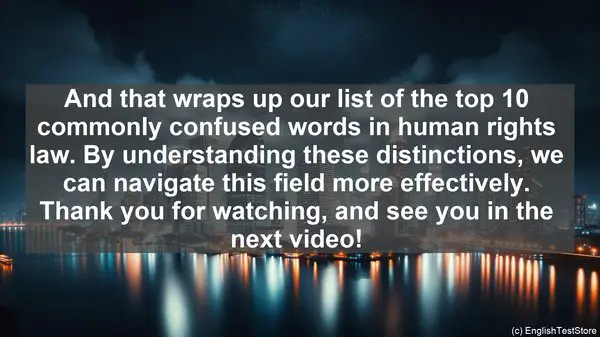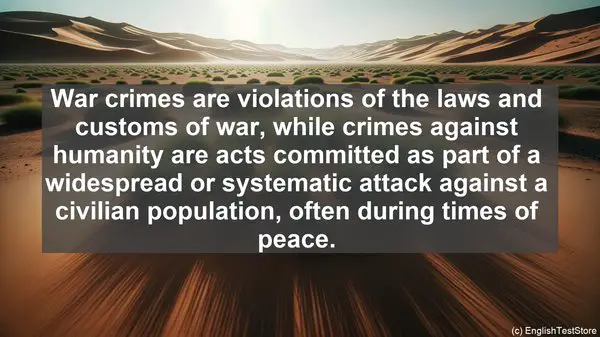Introduction
Welcome to our lesson on the top 10 commonly confused words in human rights law. Understanding these words is crucial for a comprehensive grasp of this subject. So, let’s dive in!
1. Discrimination vs. Prejudice
While discrimination refers to the unjust treatment of individuals or groups based on certain characteristics, prejudice is a preconceived opinion or bias. Discrimination is an action, while prejudice is a belief or attitude.
2. Liberty vs. Freedom
Although these terms are often used interchangeably, there is a subtle difference. Liberty is the state of being free from oppressive restrictions, while freedom is the power or right to act, speak, or think as one wants.
3. Rights vs. Responsibilities
Rights are entitlements that individuals possess, while responsibilities are the obligations or duties one has towards others or society. Both are essential for a balanced society.
4. Equality vs. Equity
Equality means treating everyone the same, while equity is about fairness and providing individuals with what they need to be on an equal footing. It’s about addressing existing disadvantages.
5. Civil Rights vs. Human Rights
Civil rights are the rights of individuals within a specific country, while human rights are universal rights that every person is entitled to, regardless of their nationality or citizenship.
6. Due Process vs. Equal Protection
Due process ensures that individuals are treated fairly by the legal system, while equal protection guarantees that everyone is entitled to the same legal rights and opportunities.
7. Sovereignty vs. Supranationalism
Sovereignty refers to a state’s authority and independence, while supranationalism is the idea of multiple states voluntarily pooling their sovereignty for common goals, as seen in organizations like the EU.
8. Ratification vs. Reservation
Ratification is the formal approval or acceptance of a treaty or agreement by a state, while a reservation is a statement made by a state when signing a treaty, excluding or modifying certain provisions.

9. Genocide vs. Ethnic Cleansing
While both involve mass violence and targeting of specific groups, genocide is the intentional and systematic destruction of a particular ethnic, racial, or religious group, while ethnic cleansing is the forced removal or displacement of a specific group.
10. War Crimes vs. Crimes Against Humanity
War crimes are violations of the laws and customs of war, while crimes against humanity are acts committed as part of a widespread or systematic attack against a civilian population, often during times of peace.

